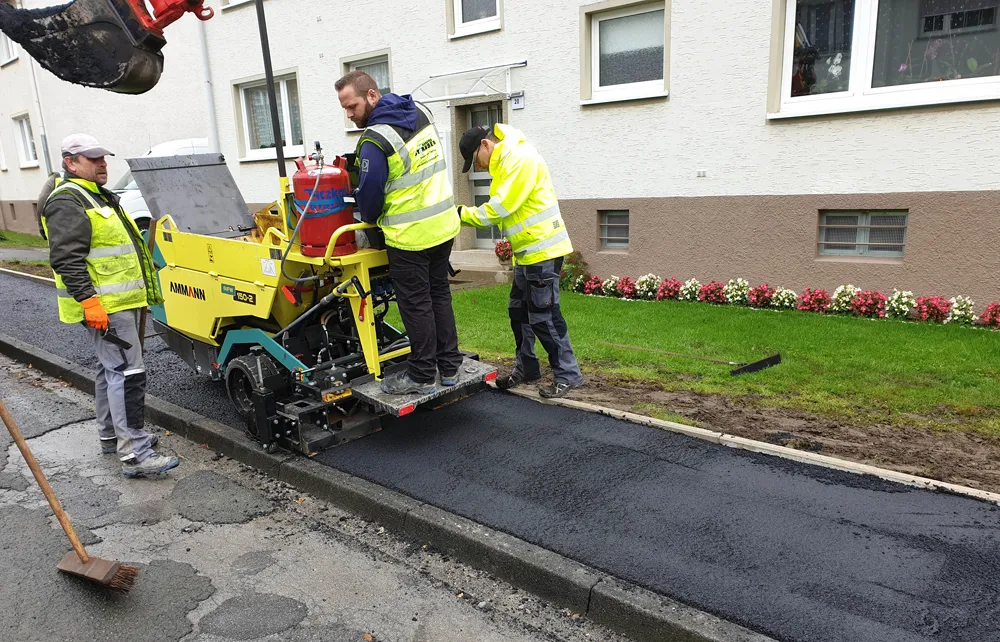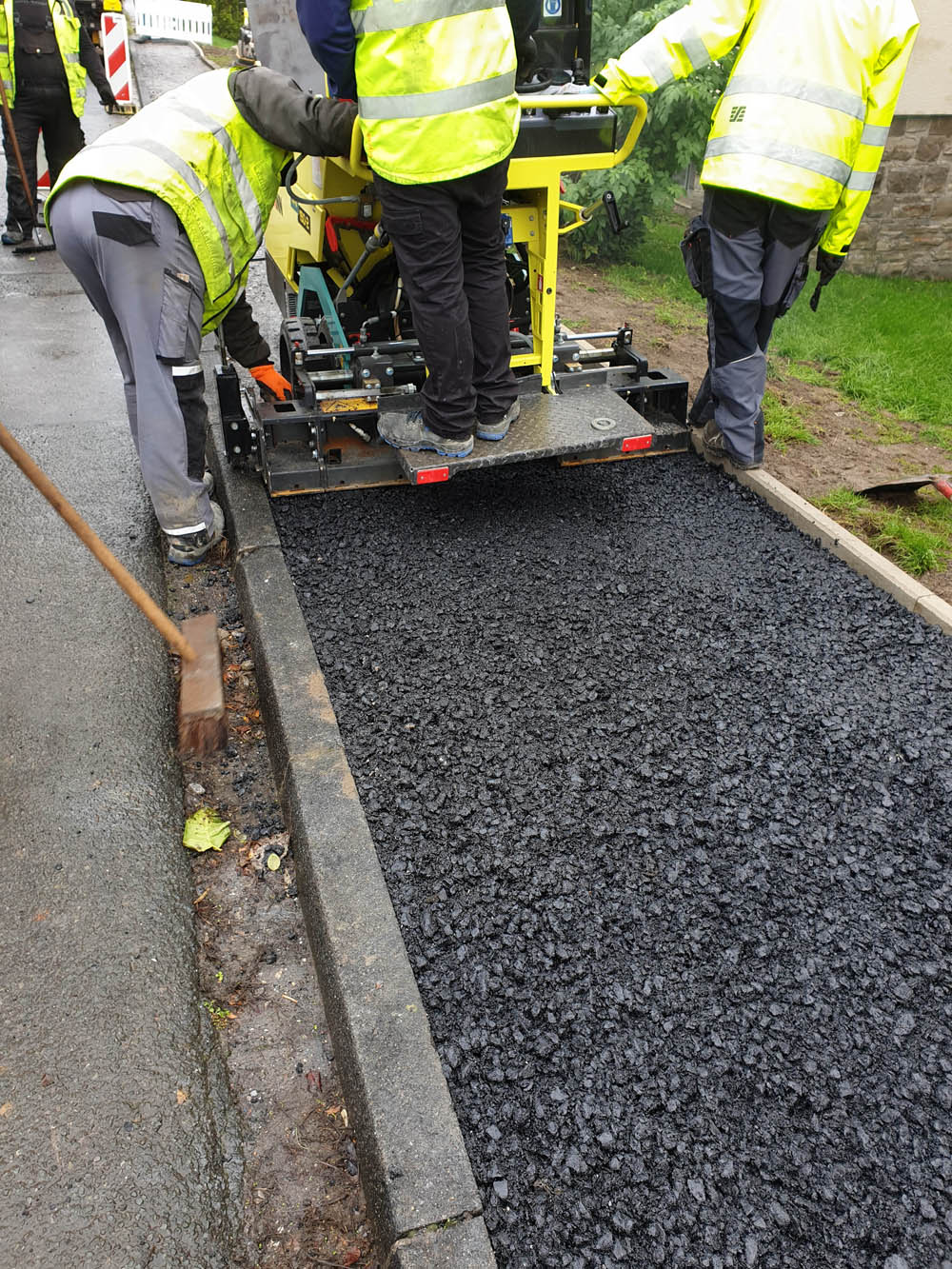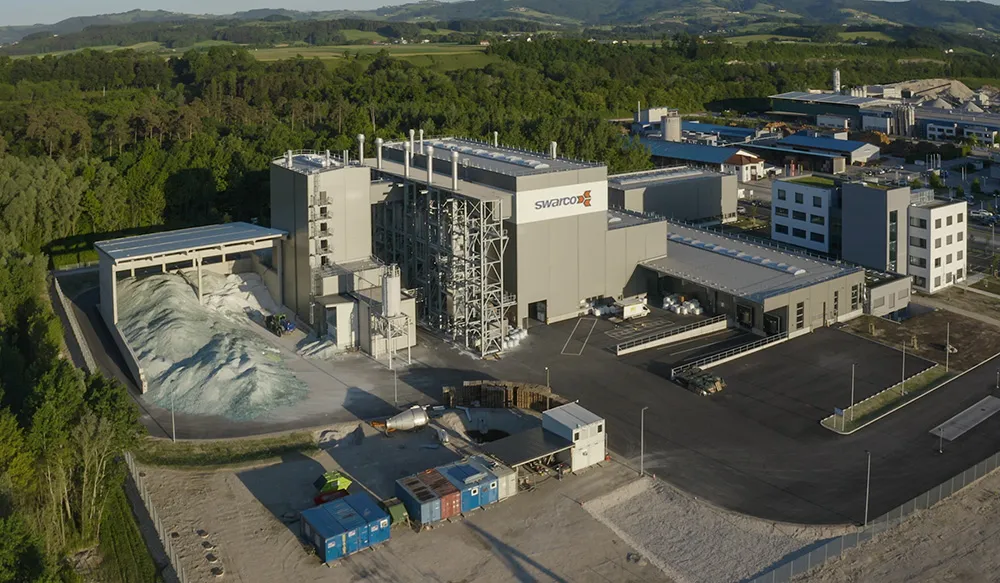
As a road and civil engineering contractor, Karsten Stirnberg frequently repaves footpaths and bicycle trails in the Sauerland region of Germany. Until recently, the firm was not convinced on the benefits of using a machine for paving at narrow widths.
After the company’s latest rehabilitation project, owner Karsten Stirnberg changed his mind, based on the performance of the Ammann AFW 150-2 Mini Paver.
The paver was put to the test on a utility job in Menden, replacing the surface after pipeline repair work.
The dilapidated pipeline, located under pavement that was only 800mm wide, was wedged between the curb and front gardens, and ran through a residential street in Menden.
“We have always paved such narrow strips by hand,” Stirnberg said. He believed initially that using a paver would not be advisable given the small paving width, thinking this would be too expensive and too complex.
But Stirnberg decided to try the machine, testing one supplied by local dealer Kreitz & Ostermann in the neighbouring town of Iserlohn. The dealer also provided onsite instruction and helped train Stirnberg’s personnel to operate the paver, as well as providing support.
“The compact dimensions and unique performance data raised my interest in the machine,” said Stirnberg. The AFW 150-2 from Ammann is one of the most compact pavers around. It is only 2.9m long, 1.64m high and not even 880mm wide. The machine was easily able to handle the pave width of just 800mm required for the project, without any additional equipment. This model can even pave widths of just 250mm with only minor adjustments.

The AFW 150-2 twice travelled down the 300m-long by 800mm-wide footpath. During the first pass, the machine placed a 60mm-thick base course. Next came a 40mm surface pass. The compact paver is capable of handling thicknesses up to 100mm without difficulty.
Paving by hand would have taken at least eight hours and required more personnel according to Stirnberg, while the quality of finish was also high.
Because of the productivity and efficiency of the machine, Stirnberg opted to buy the unit rather than return the test machine to the dealer, Kreitz & Ostermann.









